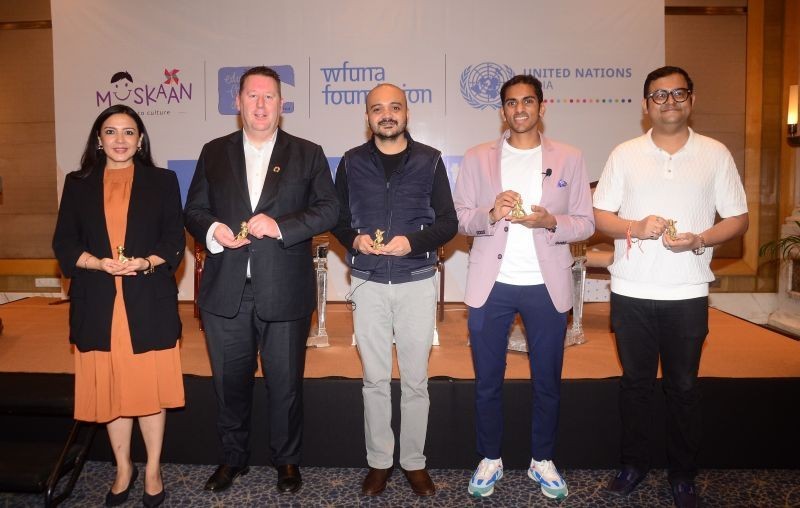 AI
(L-R) Navjyot Mallika Kaur, Darrin Farrant, Samyak Chakrabarty, Arjun Vaidya and Aniket Deb. Photo: Organisers
AI
(L-R) Navjyot Mallika Kaur, Darrin Farrant, Samyak Chakrabarty, Arjun Vaidya and Aniket Deb. Photo: Organisers
'Change is imminent, embrace the reality': Education sector stares at transformation in age of AI
Kolkata : “Just like the invention of electricity saved us from studying under lamps, AI is only a tool that will help us in our education—we must adopt it,” said Mumbai-based Epiq Capital Director Navjot Mallika Kaur. She joined other panelists in stressing the importance of Artificial Intelligence in the education system at a seminar in Kolkata on Saturday.
The seminar, titled “Future of Education in the Age of Artificial Intelligence,” was organised by Muskan, Education For All, WFUNA Foundation, and the United Nations at ITC Royal Bengal.
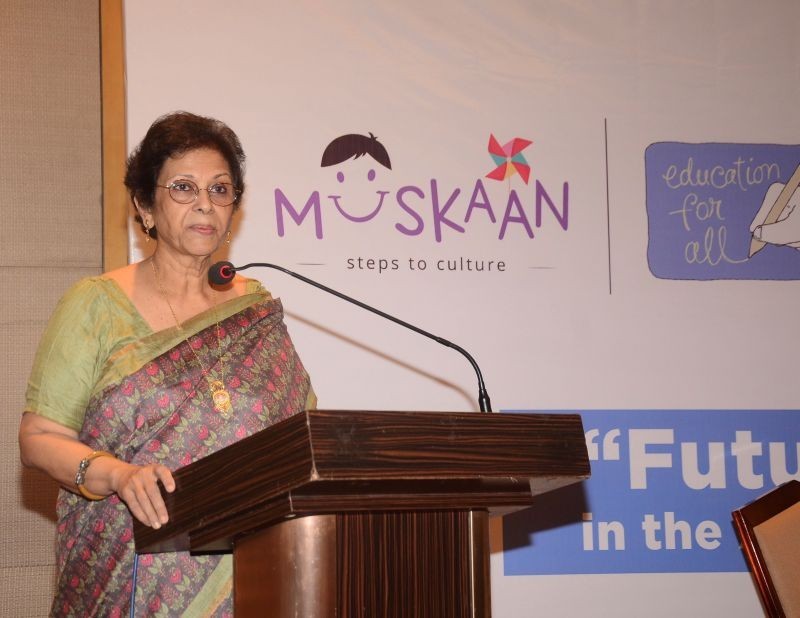 Sumitra Ray, Student Programme Advisor, Muskaan.
Sumitra Ray, Student Programme Advisor, Muskaan.
It was inaugurated by Darrin Farrant, Director of the United Nations Information Centre, while Sumitra Ray, Student Programme Advisor, Muskaan, set the ball rolling with her welcome address.
Mallika, who attended the event with her mother, highlighted the urgency of integrating AI into education, citing how Chinese schools are already embracing it.
“I have done a lot of research on what Chinese schools are doing. Around 2,000 schools there have adopted AI, and they’re not shying away from it. They’re actually using it to make children future-ready. That’s a reality we must embrace instead of judging or running away from it,” she said.
“AI gives us opportunities. We remain the masters. Irrespective of age, ChatGPT or any AI tool can act as an assistant, helping us sharpen our capacities to get things done.”
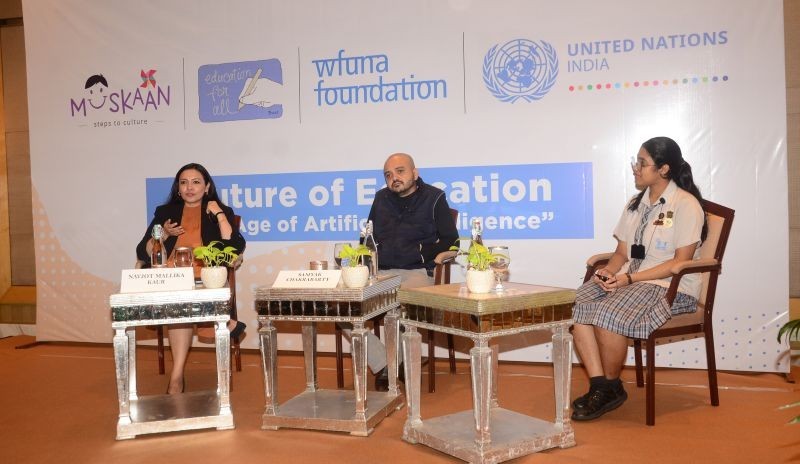 (L-R) Navjot Mallika Kaur, Samyak Chakrabarty and a student from The BSS School.
(L-R) Navjot Mallika Kaur, Samyak Chakrabarty and a student from The BSS School.
Mallika, who completed her schooling in Kolkata, added: “The quality of schools and teachers here is already very high, but we need to update ourselves in the age of AI. Teachers must become friends with technology instead of being scared of it or tinkering only with the basics.”
Samyak Chakrabarty, founder of Workverse, echoed this sentiment: “West Bengal has always had vibrant conversations on art and culture, as it should. But now it’s important to bring in conversations about Artificial Intelligence and its role. This city and state already offer unparalleled creativity and intellectual fearlessness. Combined with the computing power of AI, the outcomes can be extraordinary.”
The session saw the participation of students from several schools, including Don Bosco School (Park Circus) and The BSS School, along with their teachers, who listened cautiously as AI’s rapid growth loomed over traditional curricula.
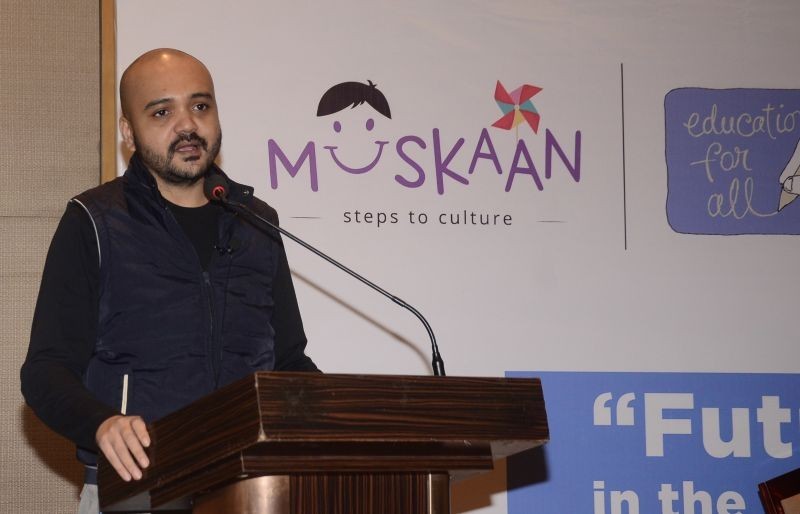 Samyak Chakrabarty, founder of Workverse.
Samyak Chakrabarty, founder of Workverse.
When asked about the gap students feel between traditional and tech-based education, Bizongo co-founder Aniket Deb emphasized the enduring role of human touch.
“Learning has never been more important. Even when using Google Maps, we humans still need to set the start and end points. Education is about survival first, then thriving. People will not stop developing just because some jobs are lost. That’s not how humanity works,” Deb said.
Advising students to narrow their focus, he added: “Transitions have always created new jobs. Students who make conscious choices about subjects and aspects will shine. The ability to choose will define the future—even deciding which AI tool to use for which purpose. That’s critical.”
Deb, who co-founded Bizongo in 2015 inspired by Prime Minister Narendra Modi’s Make in India initiative, underscored how self-driven choices will determine success in the AI era.
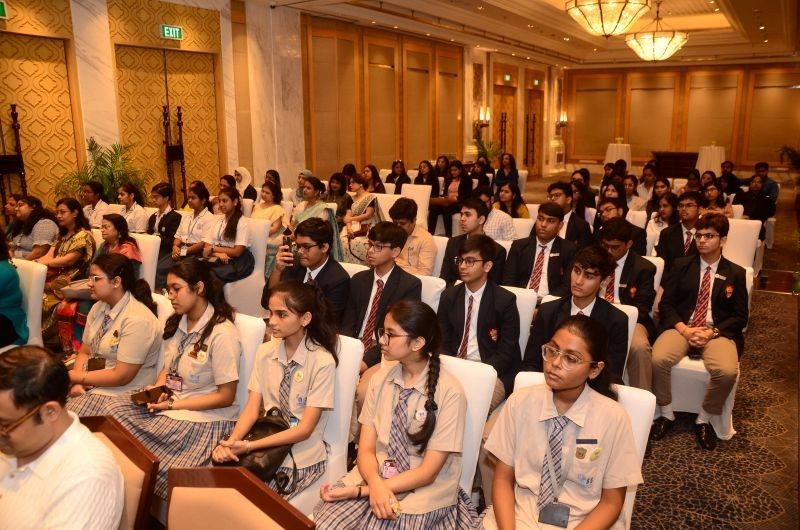 Students and teachers and principals.
Students and teachers and principals.
Entrepreneur Arjun Vaidya, founder of Dr. Vaidya’s and sixth-generation inheritor of a 150-year-old Ayurvedic family legacy, raised questions about the relevance of rote learning in the AI age.
A history enthusiast himself, Vaidya recalled memorizing dates during his school days. “I used to paste chart papers full of notes and dates on my walls. But today, students may no longer need to memorize those dates—they’re available at our fingertips. What will matter is understanding the context: what happened on those dates and how it shaped the world,” he said.
Opening remarks by Darrin Farrant, UNIC Director
“The UN General Assembly this week announced two initiatives to enhance global cooperation on AI governance. First, the establishment of the UN Independent International Scientific Panel on AI; and second, the global dialogue on AI governance. These will be significant steps toward harnessing AI’s benefits while addressing its risks.
“The global dialogue will provide an inclusive UN platform for countries and stakeholders to discuss critical issues concerning AI and humanity. India, home to one-sixth of humanity, will be a key player in this journey. We should embrace AI boldly but also ethically and inclusively,” Farrant said, during his first visit to Kolkata.
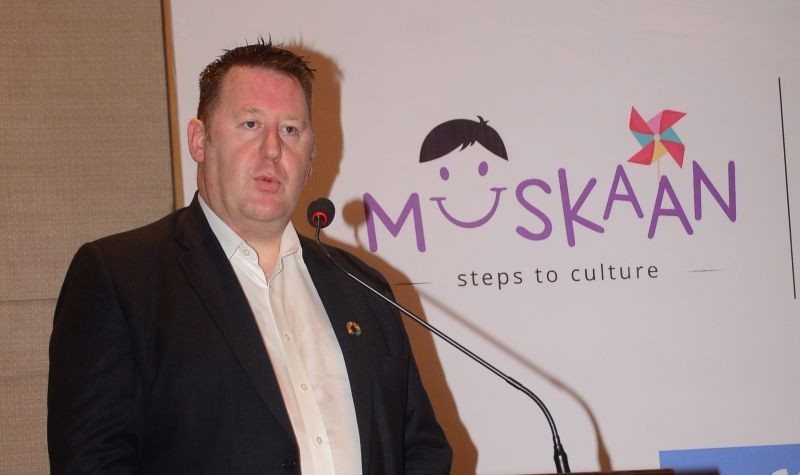 Darrin Farrant, Director of the United Nations Information Centre.
Darrin Farrant, Director of the United Nations Information Centre.
Muskaan Series
The Muskaan series by Prabha Khaitan Foundation seeks to popularize heritage literature and culture among young children across India, by integrating these aspects into formal education and cultural engagements through creative events and activities. Education for All Trust supports access to schooling for children from marginalized communities, focusing on removing obstacles to education in remote and underprivileged areas through scholarships, resources, and support systems.
(Photos: Organisers)
Top Headlines
-
News
From car diplomacy to global strategy: Modi, Macron upgrade IndiaFrance ties
February 17, 2026
-
News
Seva Teerth: PM Modi inaugurates new PMO, announces these key decisions on first day
February 13, 2026
-
News
Hero of Operation Sindoor: IAF vice chief hails Rafale ahead of mega 114-jet deal
February 11, 2026
-
News
'Govt surrendered before Trump, sold Bharat Mata: Rahul Gandhi attacks Centre over IndiaUS trade deal
February 11, 2026
-
News
Painful times in my marriage: Melinda Gates reacts to Bill Gates being named in Epstein Files
February 05, 2026
-
News
Perverse act of self-immolation: Shashi Tharoor slams Washington Post after son Ishaans layoff
February 05, 2026
-
News
Is India moving away from the Dollar? Strategic shift in foreign reserves signals a new era
February 03, 2026
-
News
This Union budget is about building capacity, not chasing short-term consumption
February 02, 2026
-
News
AI will replace surgeons, coders and billions of jobs, warns Sraddhalu Ranade at MCHD-SKC Memorial Lecture
February 01, 2026
-
News
Sheikh Hasina attacks Muhammad Yunus from first public address in Delhi, urges uprising in Bangladesh
January 23, 2026





